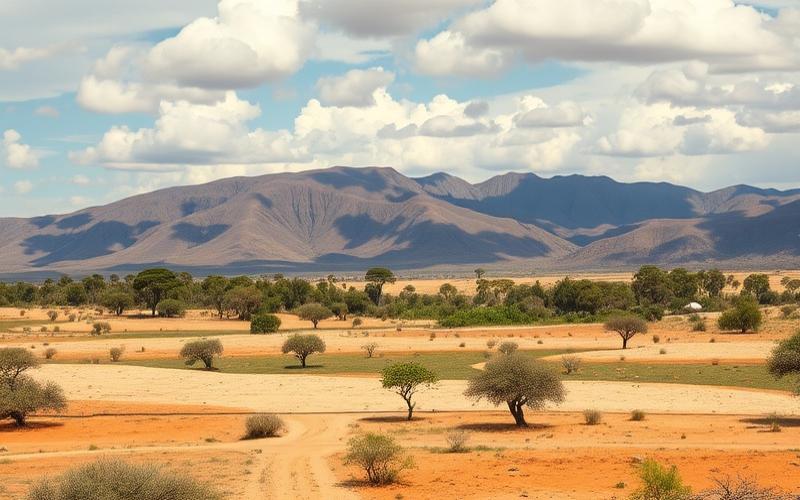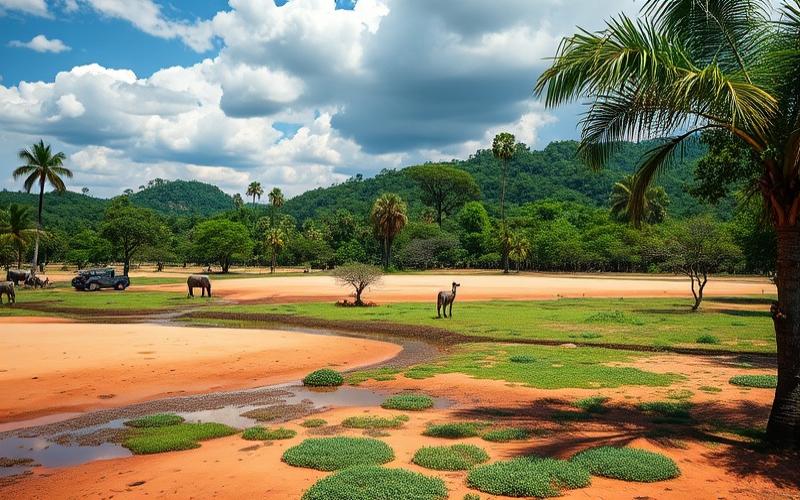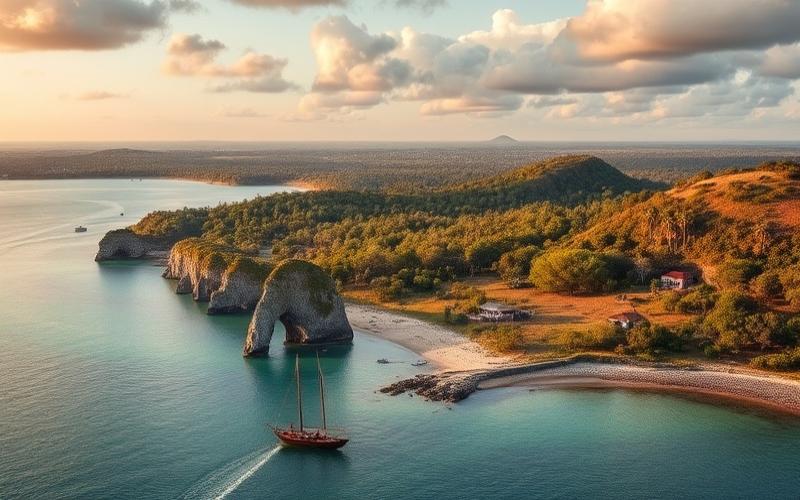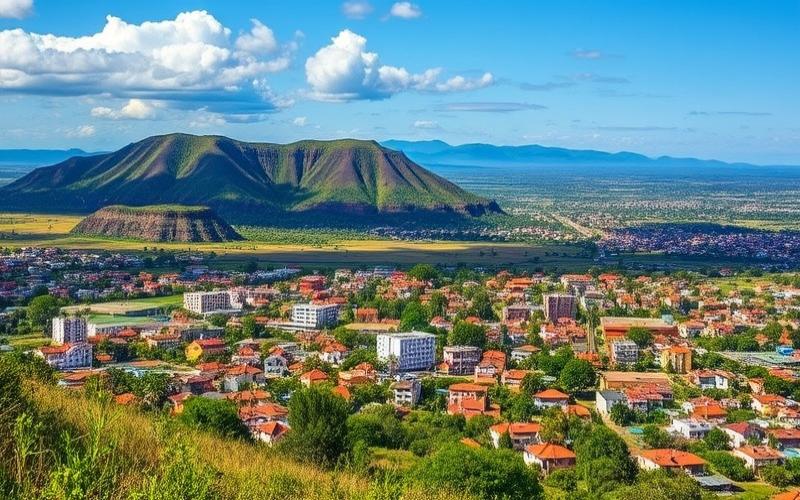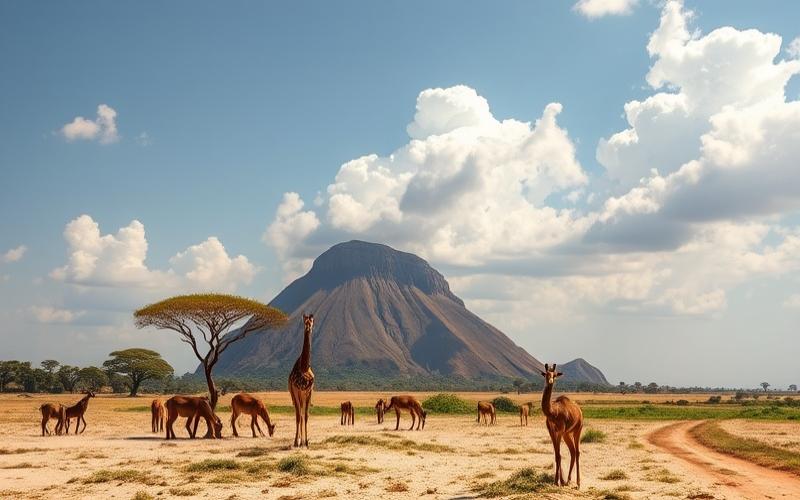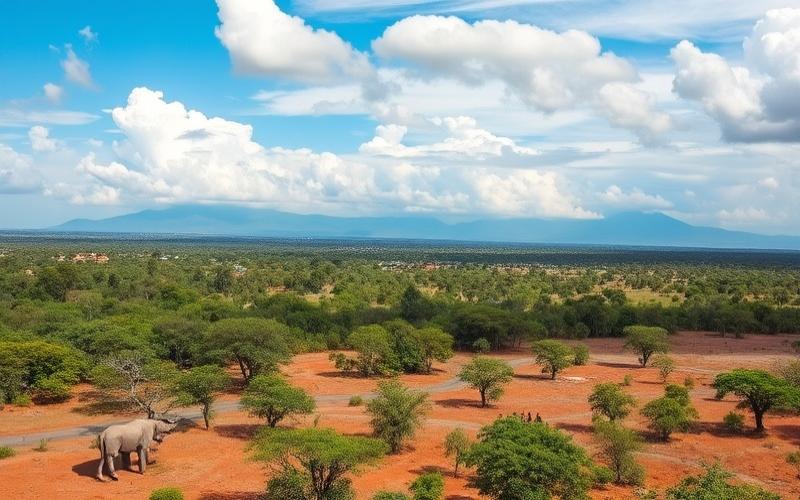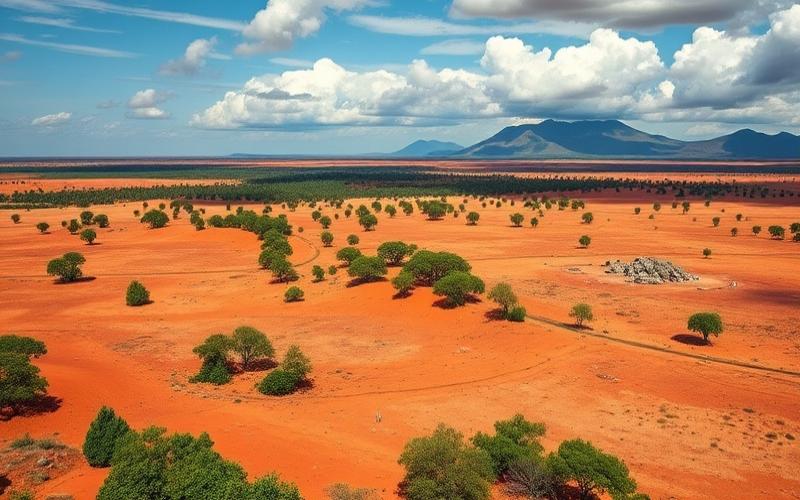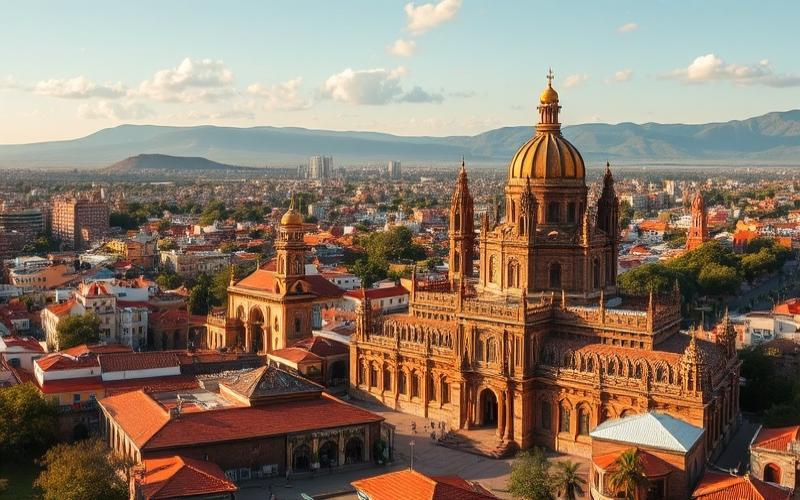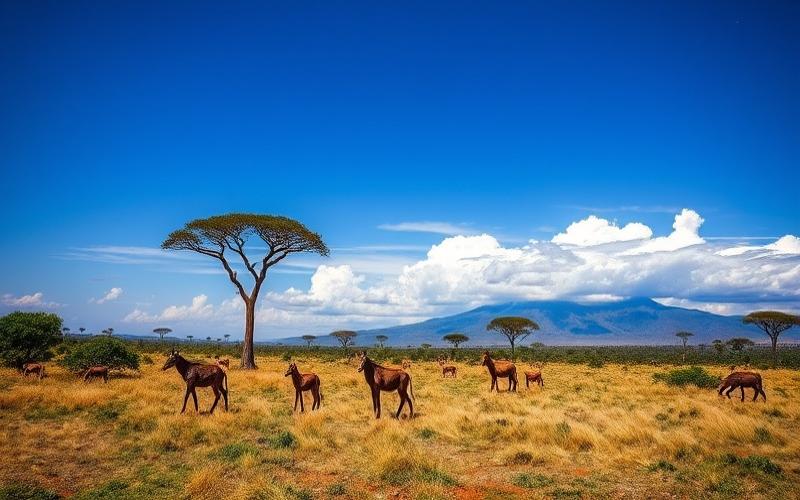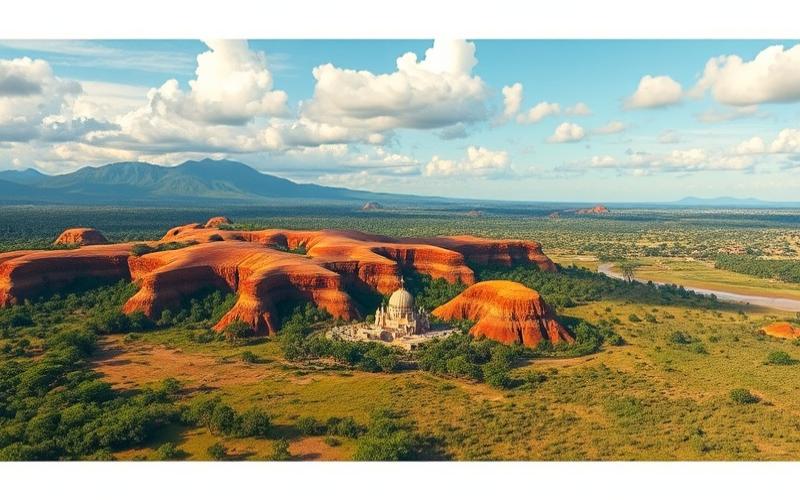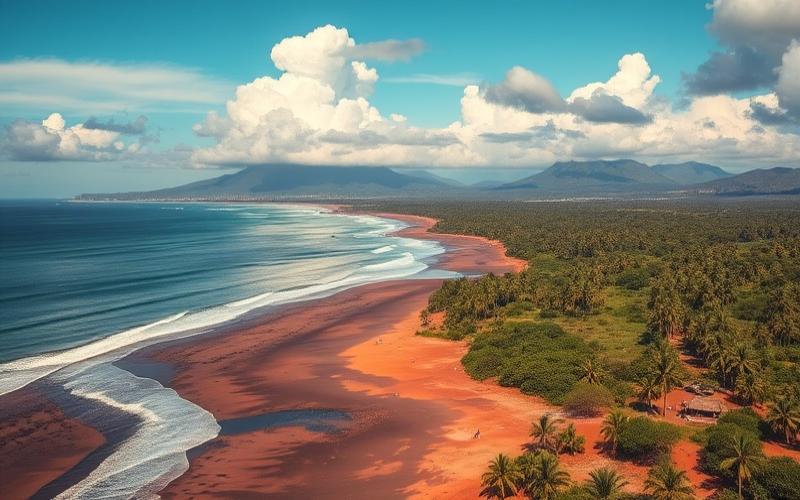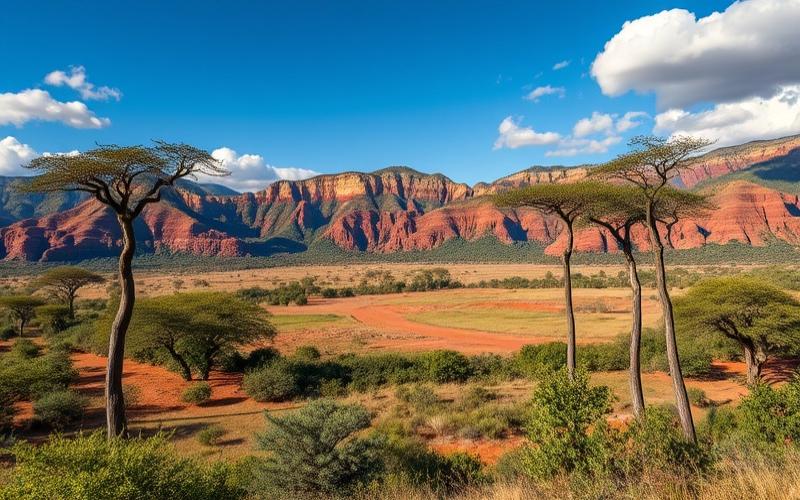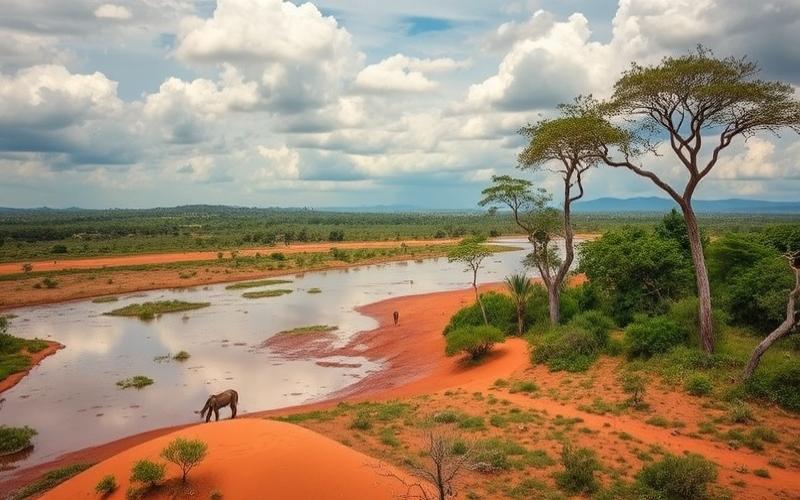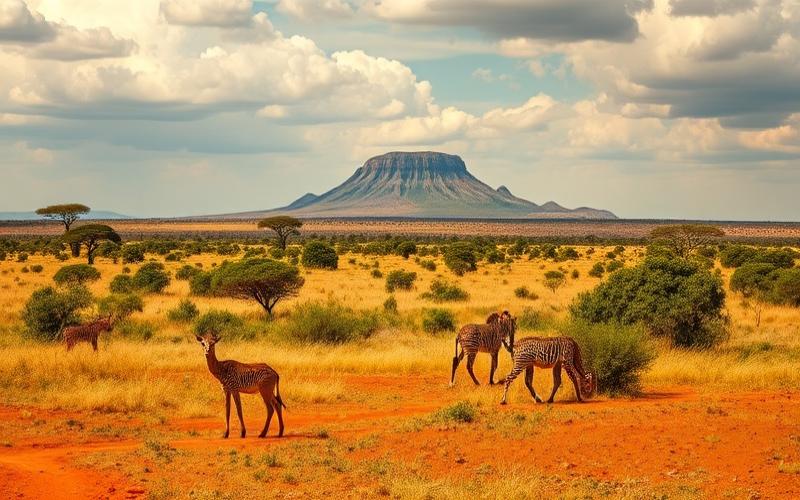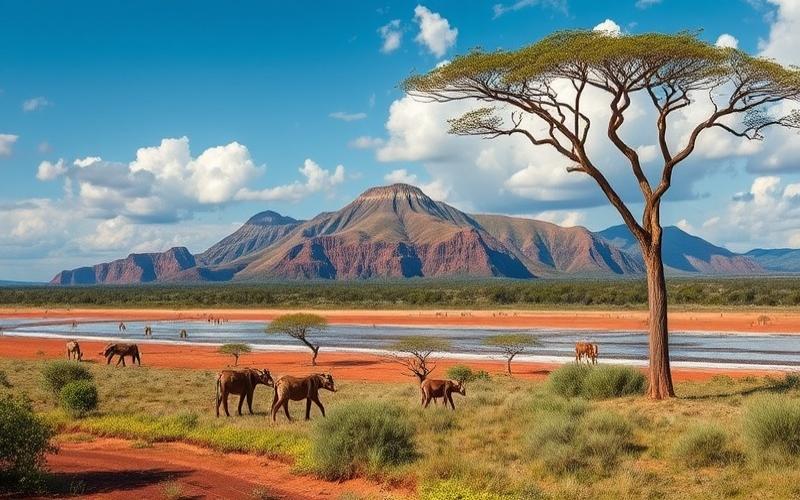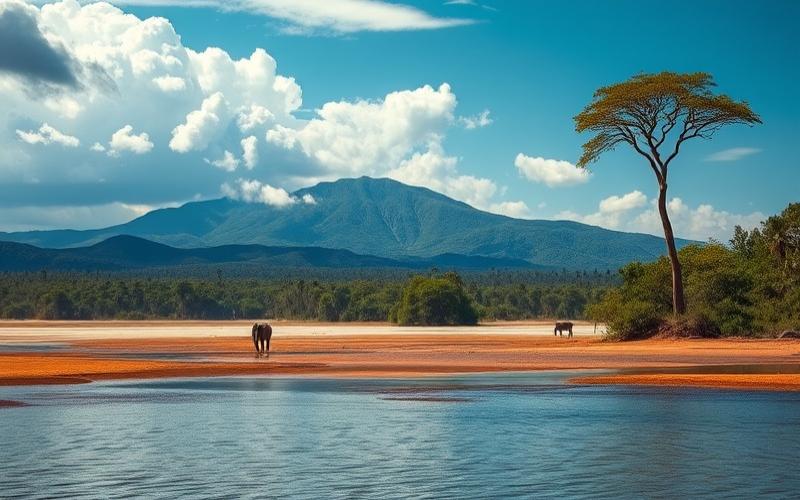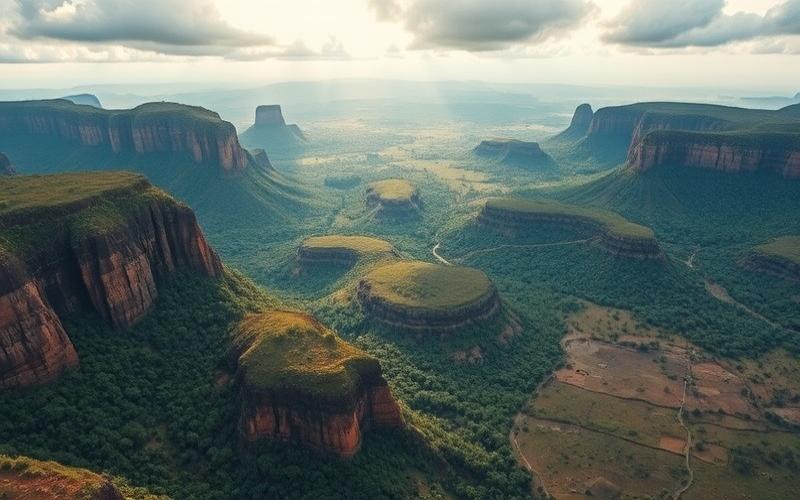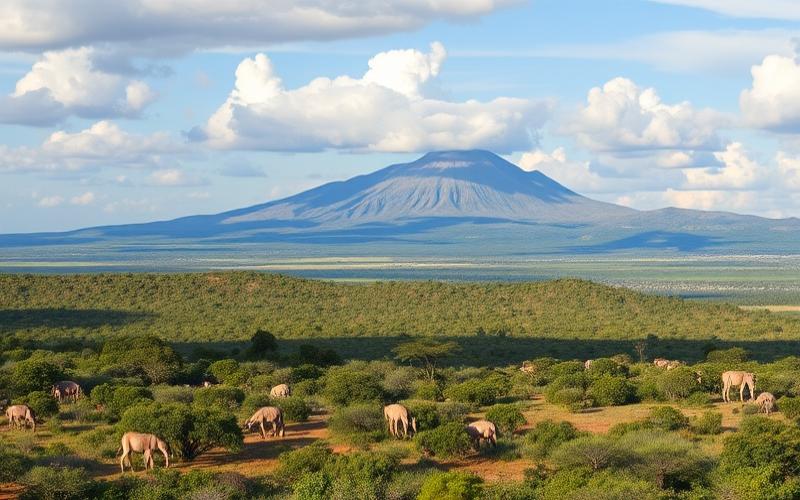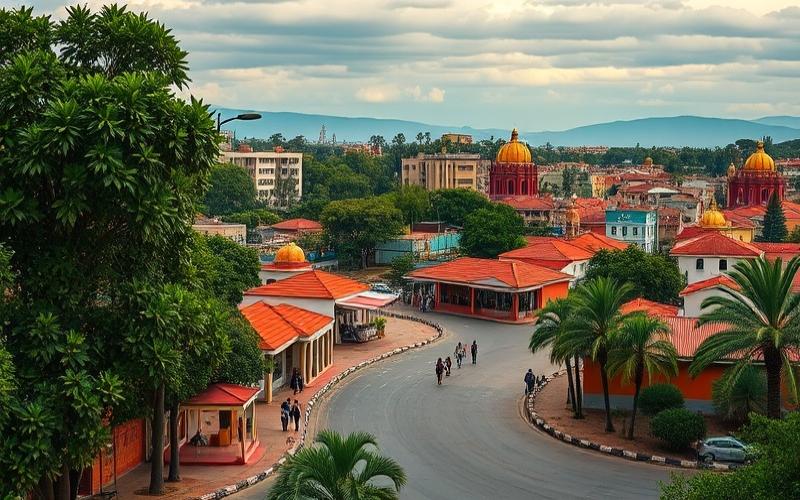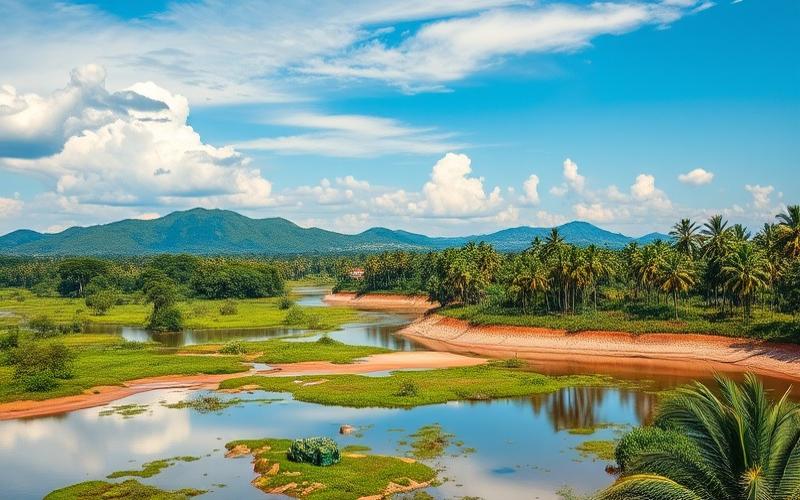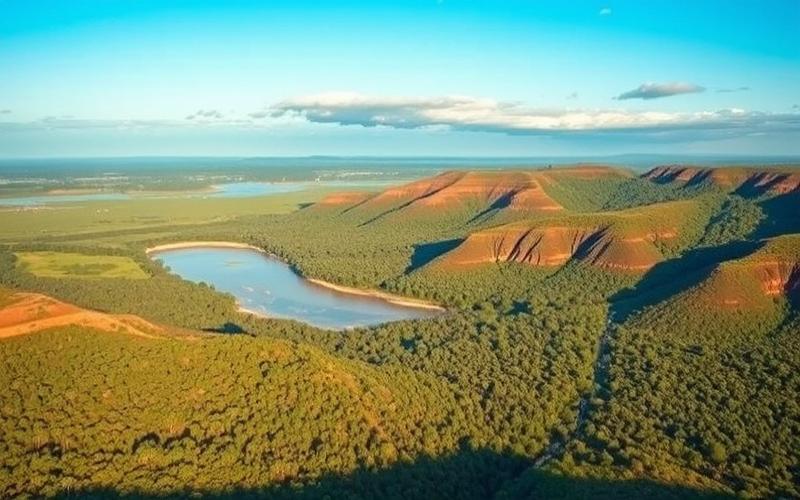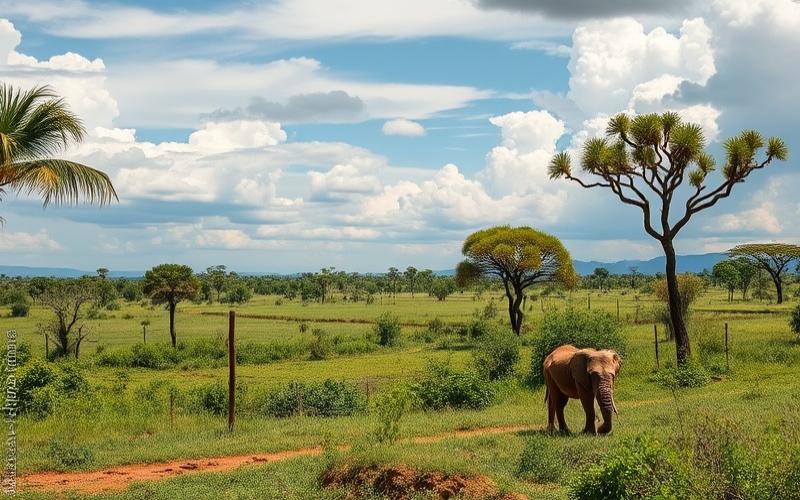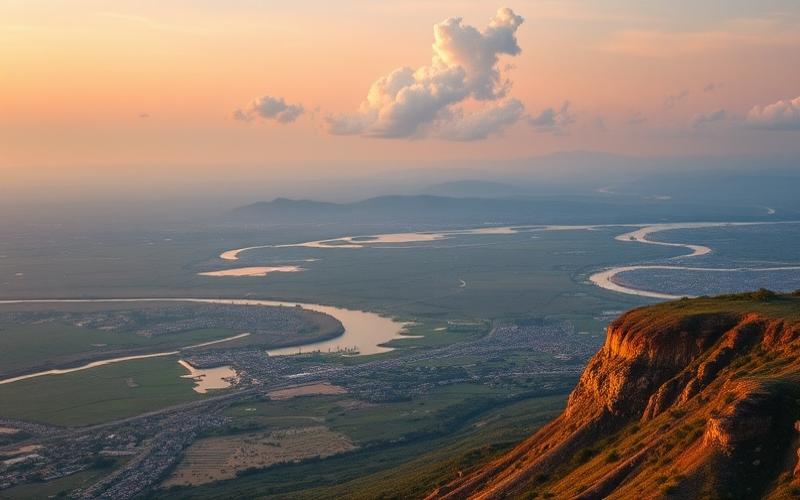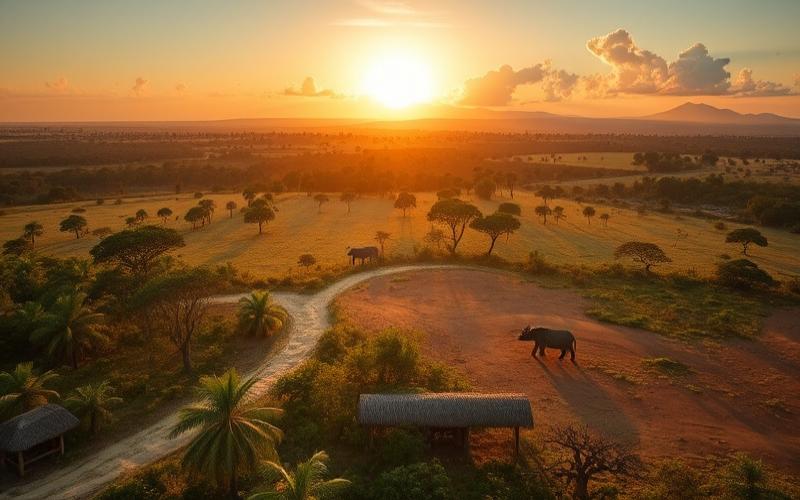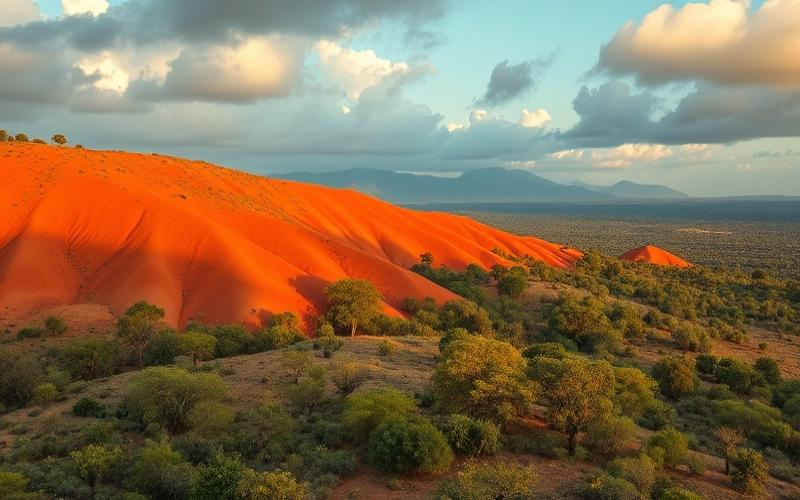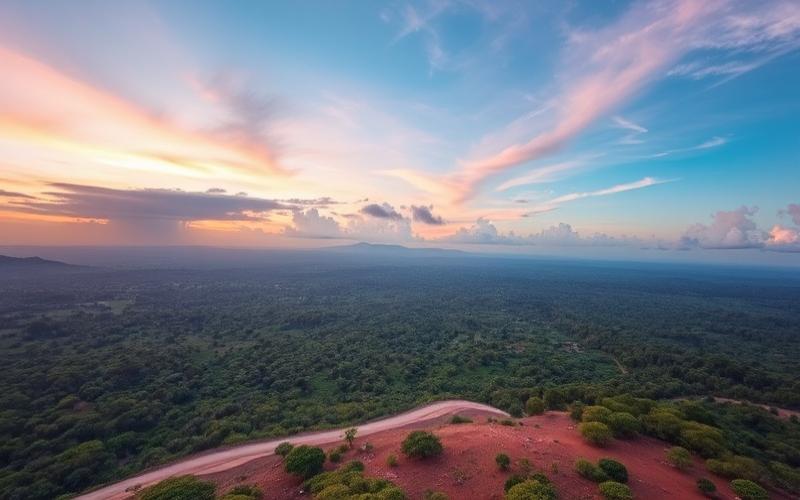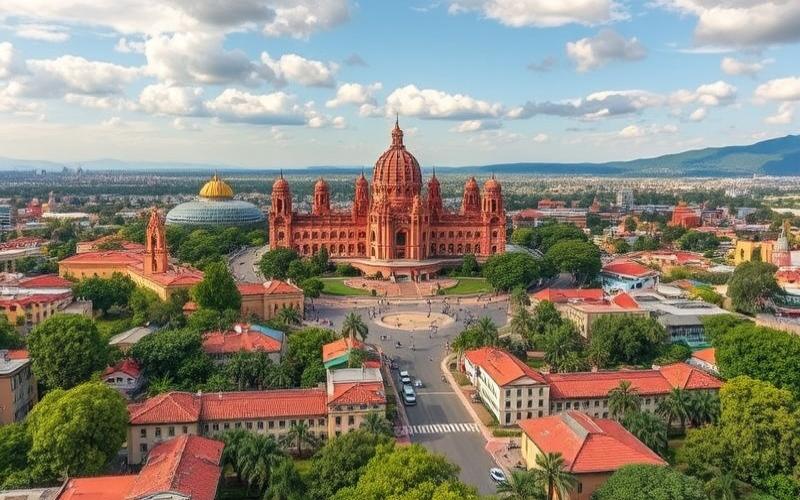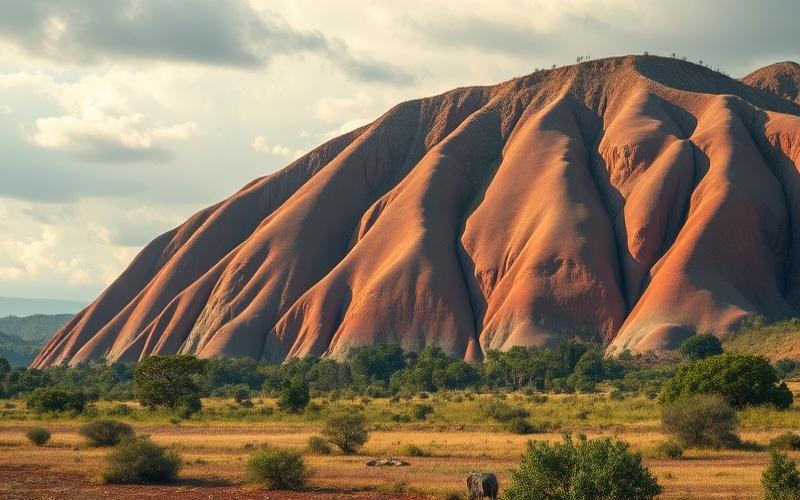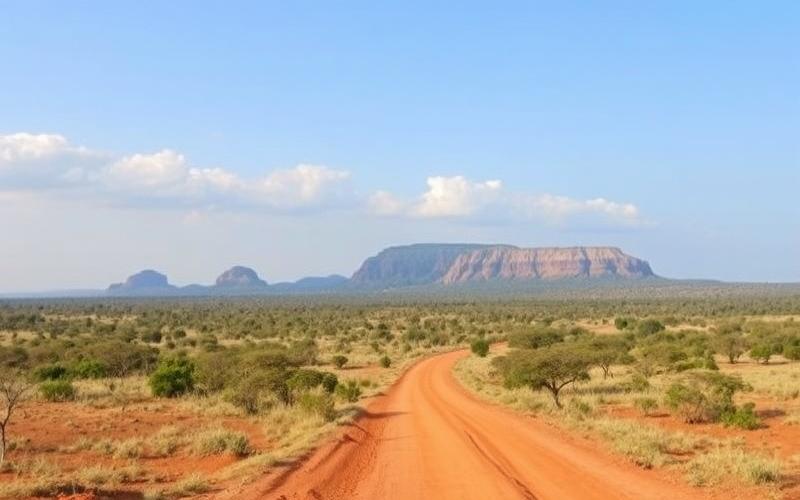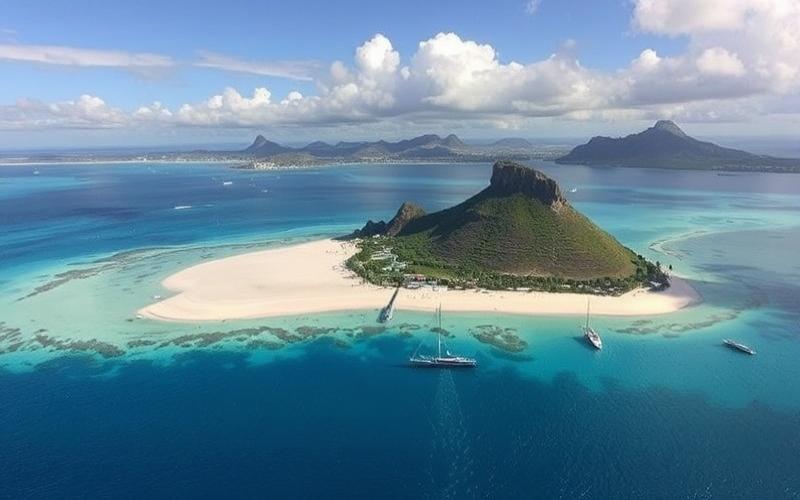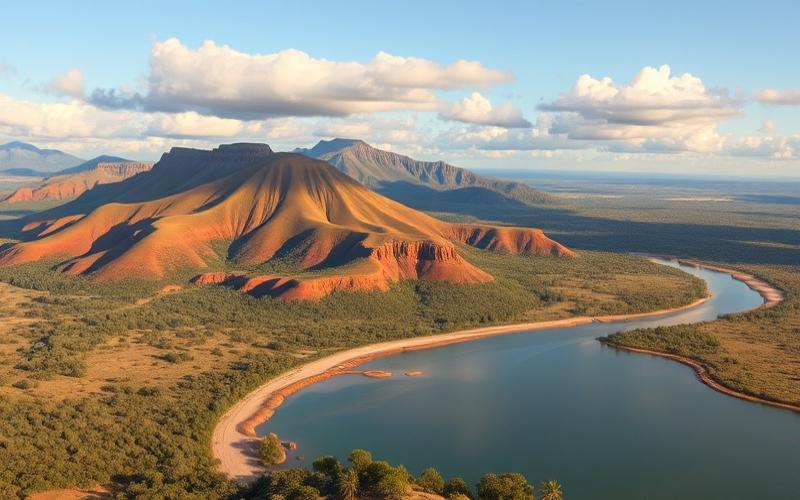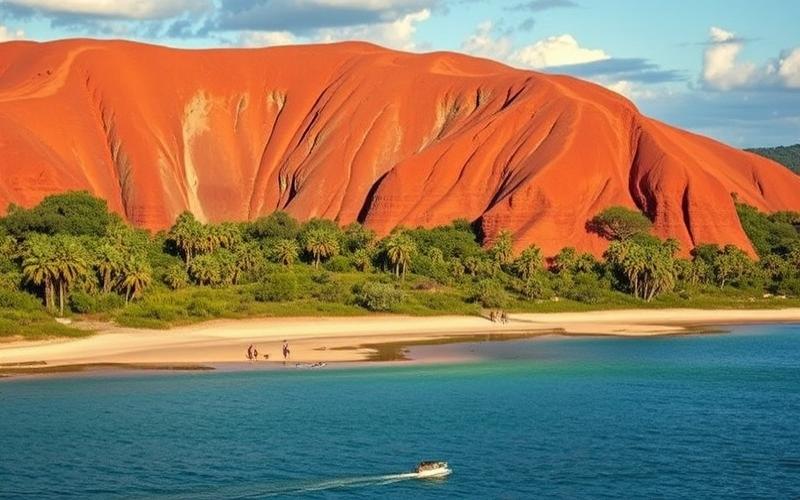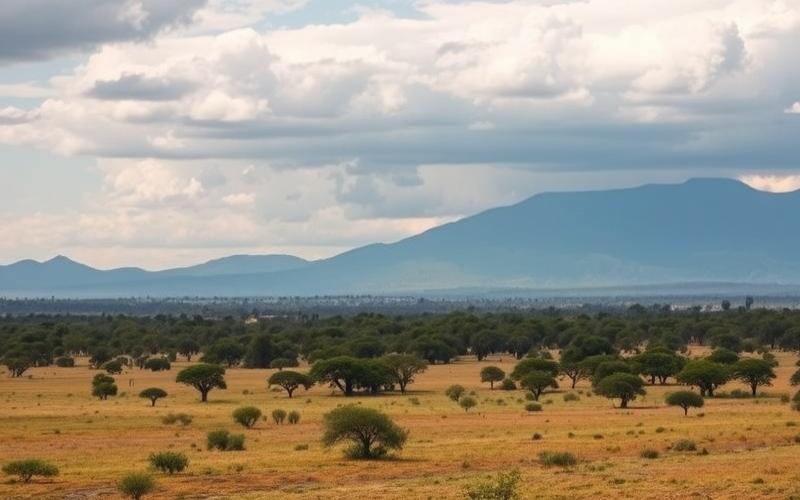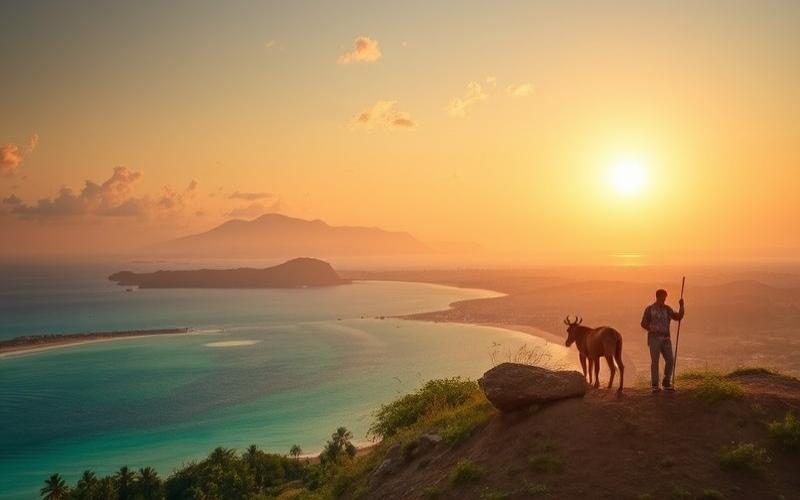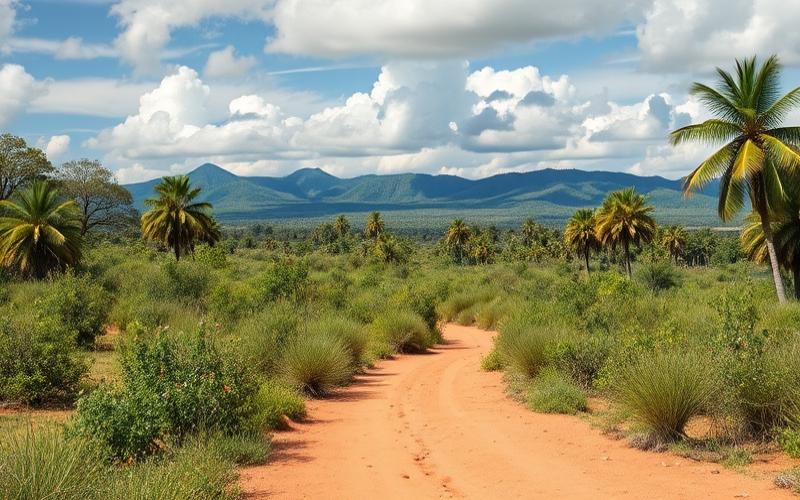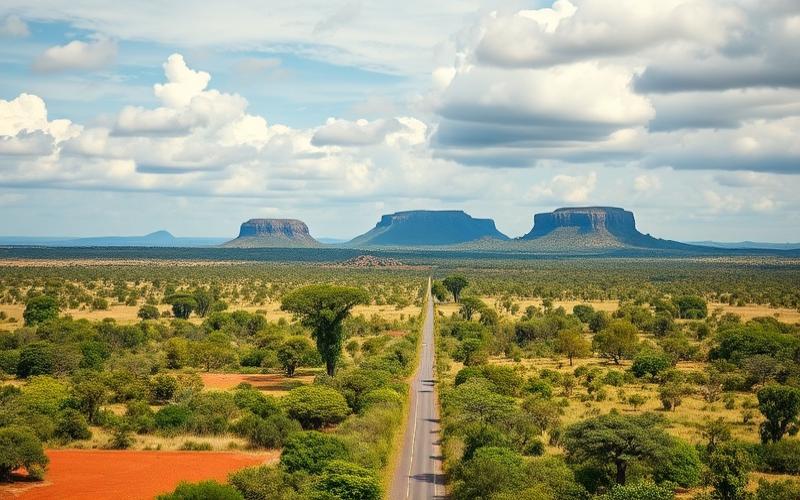
 Published on and written by Cyril Jarnias
Published on and written by Cyril Jarnias
Madagascar, with its paradise landscapes and development potential, is attracting more and more foreign investors to the real estate sector. However, the property acquisition process on the Big Island can seem complex for non-residents. This article will guide you through the essential steps, specific regulations, and tax considerations to keep in mind for your real estate project in Madagascar.
The doors to Malagasy real estate open to foreigners
Contrary to some misconceptions, foreigners can indeed acquire real estate properties in Madagascar. However, it’s important to note that certain restrictions apply. Malagasy law allows non-residents to purchase properties, but with some important nuances:
– Foreigners cannot directly acquire vacant land. However, they can obtain emphyteutic leases for up to 99 years, which grants them rights similar to ownership.
– The purchase of built properties (houses, apartments, commercial premises) is permitted for foreigners, subject to following specific administrative procedures.
– Foreign investors can create a company under Malagasy law to acquire real estate, which can offer more flexibility and tax benefits.
It’s crucial to note that regulations can change. Therefore, it’s recommended to consult a lawyer specialized in Malagasy real estate law to get the most up-to-date information tailored to your specific situation.
Good to know:
Although the restrictions may seem limiting, they aim to protect Malagasy land heritage while encouraging foreign investment. Many investors find creative solutions, such as creating local companies, to realize their real estate projects in Madagascar.
The regulatory framework for real estate in Madagascar has seen significant developments in recent years, aiming to facilitate and secure foreign investments. Here are the key points to remember:
1. Prior authorization
Any real estate purchase by a foreigner in Madagascar requires prior authorization from the Ministry in charge of Domains. This procedure, although sometimes perceived as tedious, aims to guarantee the legality and transparency of the transaction.
2. Emphyteutic lease
For undeveloped land, the emphyteutic lease represents an interesting alternative to direct ownership. With a duration of up to 99 years, it offers extensive rights, close to those of an owner, while respecting Malagasy legislation.
3. Creating a company under Malagasy law
Many foreign investors choose to create a company under Malagasy law for their real estate acquisitions. This approach offers several advantages, including greater flexibility in asset management and potentially tax benefits.
4. Priority investment zones
Madagascar has established priority investment zones where acquisition conditions and tax benefits may be more favorable for foreign investors. These zones, often located in regions with high tourism potential like Nosy Be, deserve special attention.
5. Investment protection
Madagascar has signed several bilateral investment protection agreements with various countries. These agreements offer an additional layer of legal security for foreign investors.
It’s important to emphasize that the real estate purchase process in Madagascar can be complex and time-consuming. Patience and a good understanding of the local system are essential. It’s highly recommended to surround yourself with experienced local professionals, such as a specialized lawyer and a reputable real estate agent, to navigate this process effectively.
Good to know:
Although administrative procedures may seem burdensome, they are actually designed to protect both the interests of foreign investors and those of the Malagasy state. A methodical and well-informed approach can greatly facilitate the acquisition process.
International taxation: a major issue for foreign investors
Taxation plays a crucial role in any real estate investment, and this is particularly true for foreign investors in Madagascar. Understanding the tax implications of your investment is essential to assess its profitability and long-term viability.
1. Rental income tax
Rental income generated by real estate properties in Madagascar is subject to income tax. For non-residents, the tax rate can vary, but is generally between 20% and 25% of net income. It’s important to note that Madagascar offers particularly advantageous taxation for international investors. In some cases, real estate capital gains may be tax-exempt, particularly for properties held for more than 5 years.
2. Property tax
The property tax in Madagascar is relatively moderate compared to other tourist destinations. It’s calculated based on the rental value of the property, with rates varying by region and property type.
3. Registration and transfer fees
When purchasing a property, registration and transfer fees are due. These costs are generally around 6% to 8% of the property value. It’s important to include them in your overall acquisition budget.
4. International tax treaties
Madagascar has signed tax treaties with several countries to avoid double taxation. If you’re a tax resident of a country that has such a treaty with Madagascar, you could benefit from more favorable tax provisions. It’s crucial to check the existence and terms of such treaties for your country of residence.
5. Tax optimization
The structure of your investment can have a significant impact on your tax situation. For example, investing through a company under Malagasy law can offer interesting tax benefits, particularly in terms of expense deductibility and capital gains management.
6. Special regimes for investors
Madagascar offers special tax regimes for major investments, particularly in the tourism sector. These regimes can include temporary exemptions from profit taxes or reductions in customs duties on imported equipment.
It’s crucial to emphasize that international taxation is a complex and constantly evolving field. It’s strongly recommended to consult a tax expert familiar with the Malagasy system and international implications to structure your investment optimally.
Good to know:
Although Malagasy taxation may seem complex at first glance, it actually offers many optimization opportunities for savvy investors. Careful tax planning can significantly improve the profitability of your real estate investment in Madagascar.
The winning file: essential documents for your acquisition
Preparing a complete and well-structured file is crucial to successfully carry out your real estate acquisition project in Madagascar. Here’s a detailed list of the generally required documents:
1. Identity documents – Valid passport – Visa or residence permit (if applicable) – Birth certificate (certified translation if not in French)
2. Financial documents – Bank statements from the last 3 months – Proof of income (pay stubs, tax returns) – Bank certificate of financial capacity
3. Property-related documents – Seller’s title deed – Cadastral plan of the property – Legal status certificate (less than 3 months old)
4. Administrative documents – Prior authorization from the Ministry in charge of Domains – Extract from the commercial register (if purchasing through a company) – Company statutes (if applicable)
5. Tax documents – Latest tax notices from your country of residence – Tax certificate of non-taxation in Madagascar (for non-residents)
6. Other documents – Draft sales contract – Real estate appraisal report (highly recommended) – Notarized power of attorney (if you cannot be present for signing)
It’s important to note that all documents not written in French will need to be accompanied by a certified translation. Additionally, some foreign documents might require legalization or an apostille to be recognized in Madagascar.
Preparing this file may seem tedious, but it’s essential to guarantee the legal security of your acquisition. A notary or lawyer specialized in Malagasy real estate law can effectively guide you in preparing your file, ensuring that all necessary documents are present and compliant with local requirements.
Good to know:
Although the list of required documents may seem long, careful preparation of your file can greatly speed up the acquisition process. Don’t hesitate to start collecting these documents as early as possible in your purchase project.
Keys to success: strategies for a successful real estate purchase in Madagascar
Investing in real estate in Madagascar as a foreigner can be a rewarding experience, but it requires a strategic and well-informed approach. Here are some key tips to maximize your chances of success:
1. Conduct thorough due diligence
Before committing to a purchase, make sure to meticulously verify all legal and financial aspects of the property. This includes checking the title deed, absence of disputes or encumbrances on the property, and accurate assessment of its market value.
2. Build a trusted local team
Surrounding yourself with experienced local professionals is crucial. A lawyer specialized in real estate law, a reputable notary, and a real estate agent who knows the local market well will be valuable allies throughout the process.
3. Understand local market specifics
The Malagasy real estate market has its own dynamics. Take the time to understand market trends, developing areas, and factors influencing prices in different regions of the island.
4. Consider financing options
Although local financing may be limited for non-residents, explore all available options. This may include international loans or partnerships with local investors.
5. Plan for the long term
Think about your exit strategy from the beginning. Whether for future resale or generating rental income, having a clear vision of your long-term goals will guide your investment decisions.
6. Stay informed about regulatory changes
Laws and regulations can change quickly in Madagascar. Stay in regular contact with your local advisors to be informed of any changes that could affect your investment.
7. Integrate into the local community
Developing good relationships with the local community can not only enrich your experience but also facilitate long-term property management.
8. Be patient and flexible
Administrative processes in Madagascar can sometimes be slow. Patience and flexibility are essential qualities for successfully navigating the Malagasy real estate market.
Good to know:
Although real estate investment in Madagascar presents unique challenges, it also offers exceptional opportunities. With a well-informed and strategic approach, you can not only make a profitable investment but also contribute to the economic development of this beautiful island.
Conclusion: A promising investment in a developing paradise
Real estate investment in Madagascar represents a unique opportunity for foreign investors. Despite administrative challenges and regulatory specifics, the Malagasy real estate market offers significant growth potential, particularly in booming tourist regions like Nosy Be.
The key to success lies in careful preparation, thorough understanding of the local market, and support from a team of experienced professionals. By following the advice and strategies presented in this article, you’ll be well equipped to navigate the complexities of the real estate purchase process in Madagascar.
Remember that each investment is unique and market conditions can change rapidly. It’s therefore crucial to stay informed and adapt to changes. With the right approach, a real estate investment in Madagascar can not only offer attractive returns but also allow you to participate in the economic development of this fascinating island.
Whether you’re considering acquiring a secondary residence in a paradise setting, investing in tourist rental property, or developing a commercial project, Madagascar offers a range of opportunities for savvy and well-prepared investors.
Good to know:
Real estate investment in Madagascar goes beyond a simple financial transaction. It’s an opportunity to immerse yourself in a rich culture, contribute to local development, and participate in preserving one of the world’s most unique ecosystems. With a responsible and sustainable approach, your investment can have a positive impact both financially and environmentally and socially.
Disclaimer: The information provided on this website is for informational purposes only and does not constitute financial, legal, or professional advice. We encourage you to consult qualified experts before making any investment, real estate, or expatriation decisions. Although we strive to maintain up-to-date and accurate information, we do not guarantee the completeness, accuracy, or timeliness of the proposed content. As investment and expatriation involve risks, we disclaim any liability for potential losses or damages arising from the use of this site. Your use of this site confirms your acceptance of these terms and your understanding of the associated risks.

